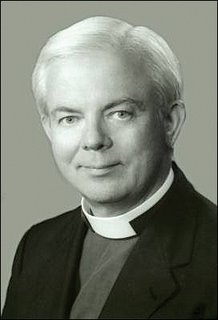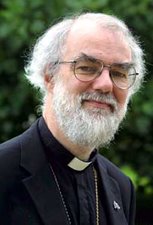StopBigMedia.com Rallies Public Opposition to Greater Media ConsolidationWASHINGTON - June 21 - A diverse alliance of consumer, civil rights, labor and media reform groups today raised serious concerns about the Federal Communications Commission's latest attempt to change longstanding rules on local media ownership. Urging greater public involvement in the debate over the future of the media, the groups launched a new campaign and Web site at www.StopBigMedia.com.
"For far too long, media policy in this country has been made behind closed doors in the public's name but without our informed consent," said Robert W. McChesney, president of Free Press. "Despite overwhelming public opposition to greater media consolidation from across the entire political spectrum, the FCC and industry lobbyists are trying to sneak through the same misguided rules rejected in 2003. Chairman Kevin Martin appears to have learned little from the last ownership rules debacle. But the public's views are clear: Big Media is already big enough."
At a meeting today in Washington, the FCC issued a "Notice of Proposed Rulemaking," the first step in any new media ownership regulations. But Chairman Martin did not outline the specifics of new rules the FCC could implement by the end of the year.
"This innocuous-looking document initiates the single most important public policy debate that the FCC will tackle this year," said Commissioner Michael Copps. "Don't let its slimness fool you. It means that this Commission has begun to decide on behalf of the American people the future of our media. It means deciding whether or not to accelerate media concentration, step up the loss of local news and change forever the critical role independent newspapers perform for our country."
The commissioners voted to launch the new process with partial dissents from Commissioners Jonathan Adelstein and Copps.
"The manner in which the Commission is launching this critical proceeding is totally inadequate," Adelstein said. "It is like submitting a high-school term paper for a Ph.D. thesis. The large media companies wanted, and today they get, a blank check to permit further media consolidation."
The new rulemaking allows 120 days for public comment, and FCC Chairman Kevin Martin pledged at today's hearing to hold "half a dozen" public hearings and conduct independent studies.
"The FCC needs to heed the lesson of its previous media ownership proceeding and this time adopt a more open, more inclusive process as it considers any changes to its rules," said Benton Foundation President Gloria Tristani, who served as an FCC Commissioner from 1997 to 2001. "The American public must have every opportunity to be engaged in and actively participate in the policy decisions that will determine the future of their media."
Opponents of greater media consolidation strongly criticized the lack of specific rules in the FCC's proposal.
"The essence of democratic government is to give the people a chance to effectively participate in writing the rules under which they live," said Mark Cooper, director of research for the Consumer Federation of America. "This Notice denies the public the opportunity to comment on the actual rules that will govern the media in America, since no rules are proposed. If the Commission does not allow further comment, the courts should reject this sham."
While today's FCC action lacks details, Chairman Martin has been outspoken in his desire to eliminate the longstanding "cross-ownership" ban that prevents one company from owning TV or radio stations and the major daily newspaper in the same market.
"The prohibition against owning a local broadcaster and a local newspaper in the same market is critical to preserving what the Supreme Court called 'antagonistic sources of news' at the local level," said Linda Foley, president of the Newspaper Guild-CWA. "While some argue that the onset of digital communications provides many sources for national and international news, the vast majority of Americans get local news from either their local TV stations or their local newspaper. Our members know firsthand that the goal of media consolidation is to gain economic efficiencies. The result is merged news operations and reduced numbers of reporters covering local stories."
The FCC also may try to lift local ownership caps to allow a company to own two or more television stations in a single market. If both rule changes were approved, one firm could potentially own the major daily newspaper, eight radio stations and three television stations in the same town.
"Instead of local ownership with a diversity of views, we now have homogenized, cookie-cutter media divorced from local concerns," said Nancy Zirkin, deputy director of the Leadership Conference on Civil Rights. "While Latino Americans, African Americans, Asian Americans, and Native Americans make up fully one-third of our nation, that one third has control over less than 2 percent of the dominant means of communication in this country. This should be a national embarrassment."
When the FCC last tried to change the media ownership rules in 2003 under then-Chairman Michael Powell, nearly 3 million people contacted the FCC and Congress to oppose the rules. They were later overturned by the courts, sending the FCC back to the drawing board.
"We filed suit against the FCC's new media ownership rules because the local groups that we know have experienced, first hand, the inordinate power that corporations exert through the media," said Pete Tridish of Prometheus Radio Project, the plaintiff in the lawsuit, Prometheus v. FCC, which overturned the FCC's last attempt to change the rules.
"Last time, the FCC started with a presumption that its goal was to deregulate," said Andrew Jay Schwartzman, president of Media Access Project, who argued the Prometheus case. "This time, we have a court decision that tells the FCC to take its thumb off the scale. If the Commission follows that directive, I'm sure that it will leave the existing rules in place."
But some FCC watchdogs were not optimisitic that the majority of commissioners would place the public interest before the self-interest of Big Media.
"The FCC is placing the narrow interests of the country's media giants ahead of its duty to protect the public," said Jeff Chester, executive director of the Center for Digital Democracy. "Instead of a communications environment that supports diversity of expression and serious journalism, we will have one shaped by infotainment, commercialism, and private gain."
While awaiting the official schedule of hearings, allied groups are moving forward with plans for "unofficial hearings" on media consolidation — including a "Town Meeting on the Future of the Media" organized by Free Press on June 28 in Asheville, N.C., with Copps and Adelstein.
"The public understands that Big Media is growing bigger, more consolidated, and less accountable to the public," said Sydney Levy, program director of Media Alliance. "The question is whether the FCC is willing to listen. We call on the FCC to establish and encourage robust public participation."
The StopBigMedia.com campaign is coordinated by Free Press and includes more than two dozen charter members, including the Action Coalition for Media Education, AFL-CIO, Department of Professional Employees, American Federation of Television and Radio Artists, Benton Foundation, CCTV — Center for Media and Democracy, Center for Creative Voices in Media, Center for Digital Democracy, Coalition for the People's Agenda, Common Cause, Consumer Federation of America, Consumers Union, Future of Music Coalition, GRIID, Independent Press Association, Industry Ears, Institute for Agriculture and Trade Policy, Media Access Project, Leadership Conference on Civil Rights, Media Alliance, Media Empowerment Project, National Council of Churches, National Federation of Community Broadcasters, New America Foundation, Newspaper Guild-CWA, Prometheus Radio Project, Public Citizen, Rainbow/PUSH, United Church of Christ and U.S. PIRG.
"FCC Chairman Martin passed up a golden opportunity to make clear to American public that this was no longer Michael Powell's FCC," said Chellie Pingree, president of Common Cause. "Instead, the public remains uncertain about whether the FCC intends to change its ways and truly commit to involving them in these crucial media ownership decisions."
"There is widespread public concern about concentration and bias in the media," added Gene Kimmelman, vice president of federal and international affairs for Consumers Union. "We need to remind the Commission how important a variety of independent and locally owned sources of news and information are to our democracy."












